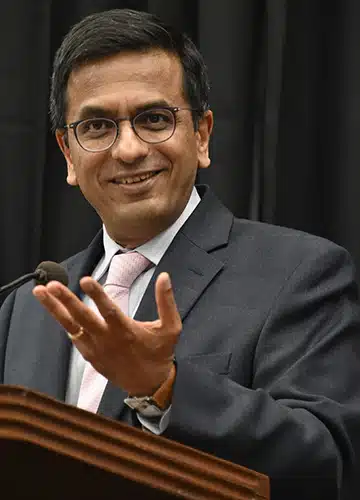Chief Justice of India, DY Chandrachud, on Wednesday announced that the process of releasing the Supreme Court judgments in regional languages has begun, as an initial step towards the same. 1,091 judgments of the top court will be released in Odia, Garo, and other regional languages on Republic Day.
Today morning, CJI Chandrachud informed the Bar regarding the same in open court.
“I have some news apart from E-SCR and 34,000 judgments available, so we also now have a number of judgments of the Supreme Court in vernacular language. It will be released on the occasion of Republic Day,” he said. A total of 1,901 judgments will be available in the vernacular languages, he added.

CJI Chandrachud said that this decision was taken in order to their mission of making judgments accessible in the local languages.
“We urge the members of the Bar to use these and whichever language they use. The judgments are in Odia, Garo, and other regional languages,” he added.
As the initial step of this mission, the judgments will be translated into four languages – Hindi, Tamil, Gujarati, and Odia, as informed by the CJI.
He emphasized the importance of regional languages and showed concern for the people who cannot understand legal English in a proper manner and highlighted the need for this initiative as a clear access to justice. He said that the English language in its ‘legal avatar’ is not comprehensible to 99.0% of the citizens. Justice cannot be meaningful unless the citizens are able to understand the language they speak and comprehend.
Providing clarity on the progress, he said that software has been developed, and a team will be created that will use machine learning for the process of translation of the Supreme Court judgments in various languages.
He highlighted the exactness, or accuracy, to be focused on, while translating the judgments, and said that such a machine translation must accord with what is actually written by the judges in the judgments.

Yesterday, during the inauguration of the Delhi High Court’s Online e-Inspection Software, the CJI ensured that a committee headed by Justice AS Oka was constituted for the translation of the top court’s judgments into regional languages. The other members of the committee to ensure the work were:
Justice Suraj Govindaraj of Karnataka High Court, Sharmistha from National Informatics Centre, Mitesh Kapra from IIT Delhi, Vivek Raghavan from Ek Step Foundation, Supriya Shankaran from Agami.
The CJI further added that “Now our mission for this is that every High Court should have a committee of two judges, one of whom should be a judge drawn from the district judiciary because of their sheer width of experience. Most of them have written judgments in those languages.”
He also announced the provision of free access to the entirety of the records and information of the court cases.













